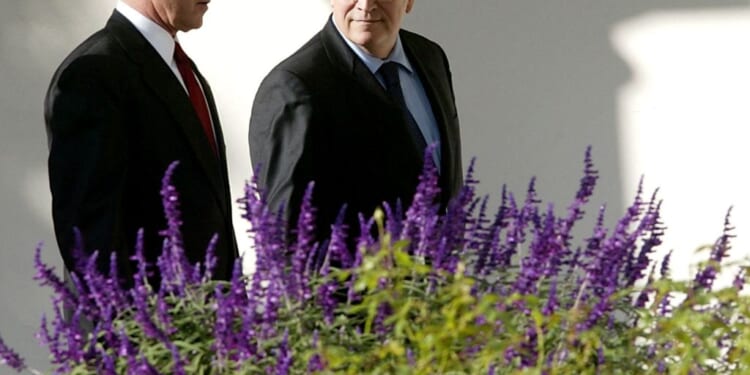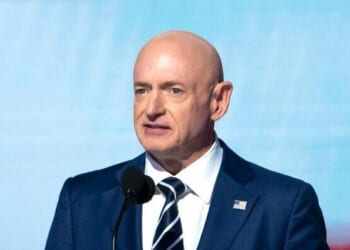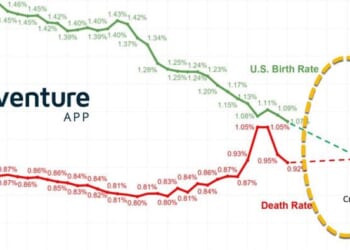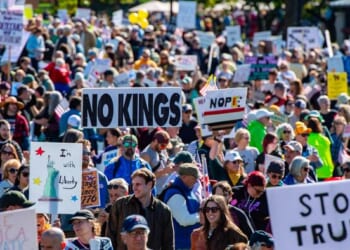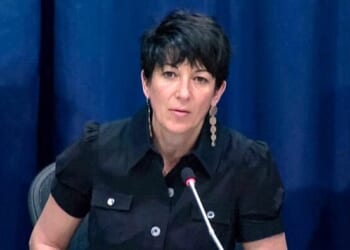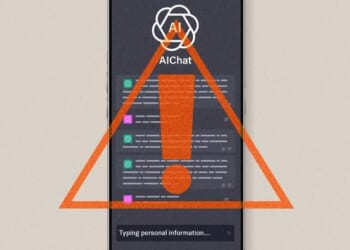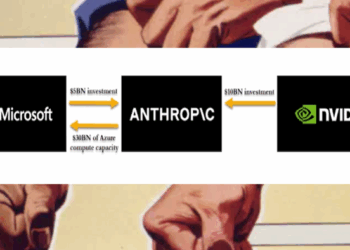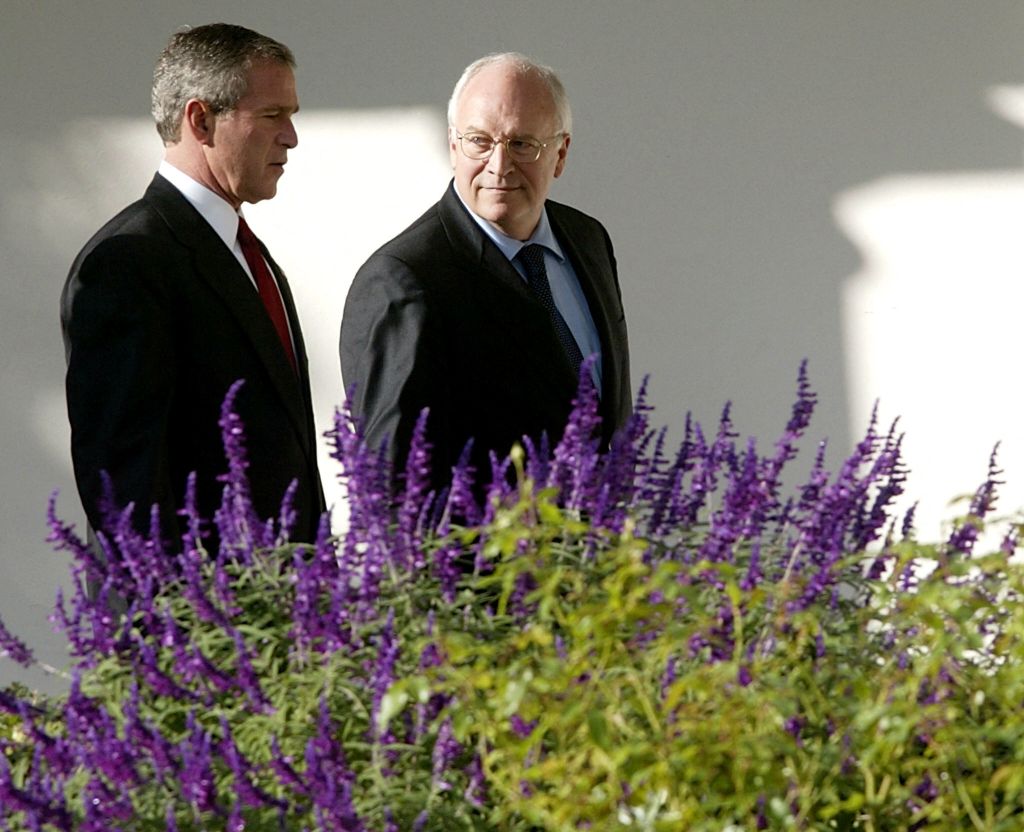
Shortly after I arrived in the Pentagon in April 1990 to begin my assignment as assistant deputy undersecretary for Soviet and East European affairs, it fell to me to introduce my boss, then-Secretary of Defense Richard B. Cheney, to an audience of business leaders visiting the Pentagon. I ran through his résumé: youngest White House chief of staff at 34, elected to the House of Representatives from Wyoming at 37, Republican whip in the House, ranking GOP member on the House Select Committee investigating the Iran-Contra scandal, and then the 17th secretary of defense. “It sort of reminds me,” I said, channeling Tom Lehrer, “that when Mozart was my age, he’d been dead for two years. It is people like that who make you realize how little you have accomplished in life.” Little did I know what lay ahead. Cheney would go on to be a corporate CEO, running Halliburton, and then by all accounts the most consequential and powerful vice president of the United States.
The breadth of his experience was truly unparalleled in the annals of American public service. I worked for him twice in the Pentagon and then later in the White House, and there was virtually never an issue I briefed him on where not only did he know more than I thought he would—but also more than I did.
His intellectual arc was extraordinary. He flunked out of Yale twice. President George W. Bush, at his Yale commencement address in 2001, said, “To those of you who received honors, awards, and distinctions, I say, well done. And to the C students I say, you, too, can be president of the United States. A Yale degree is worth a lot, as I often remind Dick Cheney—who studied here but left a little early. So now we know: If you graduate from Yale, you become president; if you drop out, you get to be vice president.” The vice president viewed his unfortunate encounter with the Ivy League as a young adult with good humor. One Friday evening, flying back with him from an undisclosed location after 9/11 on Marine 2, he casually discussed his weekend plans with me. “I am having dinner at the Observatory with my Yale roommates,” he said. “I didn’t know you were still in touch with them,” I said. He drolly replied, “They said they would tell the press how I behaved when I was there, so I had to invite them.”
Cheney was no intellectual slouch. On the contrary, he was one of the most probing and cerebral officials I ever came across in my 30 years in government. A prodigious reader with a rare historical sensibility, he was keenly aware of the dangers that senior officials run of being trapped in a bubble of official bureaucratic sources of information. During my Pentagon assignment, I organized a series of Saturday morning seminars on the fast-moving developments in the Soviet Union as it was unraveling. Working with the Pentagon’s storied director of the Office of Net Assessment, Andrew Marshall, we put together a list of participants that included Francis Fukuyama, political scientist Peter Reddaway, economist Richard Ericson from Columbia University, arms controller Rose Gottemoeller from RAND, Stephen Sestanovich (who would later be ambassador at large for the former Soviet Union), and many others. The outside perspectives led him to appreciate the rise of Boris Yeltsin and the decline of Mikhail Gorbachev well before others in the George H.W. Bush administration.
As principal deputy national security advisor to the VP, one of my tasks was to prepare, every Friday, a package of articles from magazines and journals that would provide an outside assessment of national security issues ranging far beyond official government views. He was always an assiduous consumer of intelligence, but—perhaps reflecting his service on the House Permanent Select Committee on Intelligence and his White House experience—he was an extremely judicious consumer with a rare understanding that intelligence needed to be interrogated carefully by policymakers. His well-publicized trips to the CIA after 9/11 to discuss a range of issues on Afghanistan and Iraq have been wrongly characterized as efforts to politicize intelligence: For those in the room, it was more like the unequal dialogue that military historian Eliot Cohen has recommended that politicians have with military leaders to get the best outcomes in wartime. It is a form of iterative elucidation of hidden and perhaps incorrect assumptions.
The deputy director of the CIA once told me that Cheney had the biggest briefing book of any recipient of the President’s Daily Brief because he demanded to see not just finished intelligence products reflecting the judgment of analysts but the underlying raw intelligence that would allow him to draw his own conclusions. His briefers were in awe of his powers of recall. In one of my first encounters with him in the Pentagon, I briefed him on political developments in the USSR. As I left his office, his chief of staff, David Addington, grabbed me and demanded to know whether or not I was certain about what I had just told the secretary. “I think so,” I said lamely. “Do you think so or know so?” Addington barked at me, “because six months from now it is likely to come out of his mouth on Meet the Press, and it damn well better be right.” Addington was correct. Cheney was quite capable of reproducing information you had provided him almost verbatim months later (although his answers on Meet the Press always seemed much better than the versions that we staffers had provided).
History will judge in due time his role in the post-9/11 global war on terror and, in particular, the military operations in Afghanistan and Iraq. Much of the current conventional wisdom on those subjects seems to me divorced from the urgency of the moment after the horrific attacks on New York and Washington a quarter of a century ago and tinged with partisan rancor and lack of appreciation for what French historians call la longue durée (the long run). What is incontestable is that al-Qaeda, despite its determination to strike the homeland again and again, has been unable to replicate the disastrous mass-casualty attacks it launched in 2001, which resulted in the greatest single-day loss of life on American soil since Pearl Harbor. Many deserve credit for that, but chief among them is Dick Cheney.
Contrary to the caricature of Cheney as Darth Vader, something he embraced with a rich sense of irony, he was adored by his staff, whom he treated with unfailing courtesy (even when they might have expected worse). His laconic responses to briefings could sometimes be unnerving. I was convinced he thought that I was a total idiot for the first six months I worked for him. Whenever I briefed him, his response was inevitably, “Thank you. Appreciate it.” When I queried David Addington about this lack of feedback, he said, “Lack of feedback is good. If you are screwing up, we will let you know.”
I remembered that advice with some trepidation when I had to brief the vice president one weekend on the vote of the Turkish Grand National Assembly on the potential passage of the 4th Infantry Division through Turkey en route to Iraq in the run-up to the war. My National Security Council colleagues had an open line to the U.S. Embassy in Ankara (where I was slated to arrive as ambassador later that summer) to report the vote. The initial word from the Embassy was that the motion had passed. Knowing how important the information was, I called the VP at the Naval Observatory and relayed the news. “Thanks,” he said and hung up. Two minutes later, I got a call from the White House. In fact, after a parliamentary inquiry, it turned out the vote in TGNA had failed due to the lack of a quorum despite a majority present voting in favor of the motion. I silently cursed myself for having called him so quickly with the news, as I had long ago learned that first reports are frequently, if not always, wrong. I now had to call Cheney back with the bad news. “Mr. Vice President,” I said, hoping a little light humor might leaven his response, “you remember what I told you a few minutes ago about the Turkish Parliament? Well, that information is no longer operative.” Without missing a beat he responded, “Let me guess, somebody demanded a recount.” His response made it a lot easier for me to deliver the bad news in more detail.
Cheney was a principled conservative who believed in executive power in national security, but he also believed in the Constitution. It would never have occurred to him that the executive branch could ignore a court order it disagreed with, and his belief in presidential power was purely institutional, not personal. That, I believe, explains why he found Donald Trump so vexing. When in December 2020 it briefly looked like Trump was contemplating using the military to overturn the results of the election, he and his daughter Liz—then serving in his House seat, occupying his old office in the Cannon Office Building, and ascending in leadership as fast as he had—called me and enlisted military historian Eliot Cohen and me to organize a public letter by all 10 of the then-living former defense secretaries to the Washington Post decrying this potential abuse of power. It was a huge public service and a direct consequence of his principled appreciation of the importance of the rule of law in sustaining our democracy.
The Cheney family has lost a devoted husband, father, and grandfather. I have lost a mentor and friend, and the nation has lost an extraordinary patriot, statesman, and principled conservative. I suspect we will not see his like again in my lifetime.

